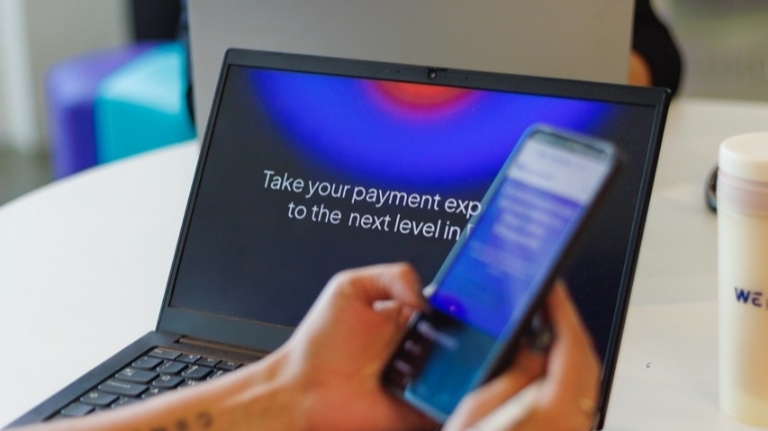

Prudential measure and responsible gaming
In April 2024, the government published a statement indicating that betting houses will be prohibited from offering Credit Cards, cash, and any other means of payment that do not allow for identifying the source of funds.
This statement clearly shows that the intention is to inhibit money laundering practices while, on the other hand, encouraging payment methods that provide technology-based traceability of funds.
Cash is therefore excluded, but why was the credit card, despite being a digital payment method, also banned from this statement? The explanation for this is based on another reason that is also a concern for the regulator: to strengthen Responsible Gaming and protect consumers against indebtedness and abusive practices.
Motivations behind the prohibition of credit cards in Brazil
* Prevention of Indebtedness: The use of credit in gambling allows consumers to bet with money they do not yet have, increasing the risk of debt.
* Responsible Gaming: The concept of Responsible Gaming is central to this decision. It involves creating policies that help limit compulsive behaviors and protect the most vulnerable consumers. By restricting the use of credit, the government hopes to reduce the negative impact of gambling addiction.
The complexity of payments in Latin America
This prohibition, on the other hand, does not occur in other LatAm countries. Credit cards and debit Cards are accepted in the Latin American betting market in many countries, favored for their convenience, immediacy, and wide acceptance. Together with other local payment methods and bank transfers, they make up the complex payment landscape in Latin America for this industry.
But why is it complex? Because, while relevant, credit cards compete with numerous APMs (Alternative Payment Methods) that vary from country to country.
To better understand the complexity of the payment scenarios for betting in Latin America, we need to recognize that each country is addressing (each in its own way) the industry's inherent needs: speed, traceability, cost, and security in transactions, whether deposits or withdrawals.

High performance in payments
The betting industry is one of the markets that demands the highest performance from payment technologies because sports betting is tied to real-world events.
The convenience and speed of payment or deposit confirmation directly impact the bettor's experience. Therefore, payment methods with older and outdated technology, such as those that operate solely during business hours (Monday through Friday), do not make sense in this industry.
At WEpayments, operators benefit from a pay-in that is 20% faster than other payment processors. More than 60% of transactions are completed in less than 1 minute, and the conversion rate exceeds 90%. Regarding payouts for bettors, at WE, they occur in an average of 20 seconds (!) with a 98% success rate, and 100% of payments have automatic reconciliation in real-time.
Due to the industry's demand for such performance, digital payment solutions are very popular. E-wallets, for example, are very popular in Latin American countries for the iGaming industry because of their immediacy, but this scenario is not the same in Brazil. Here, PIX is currently the most popular instant digital payment method.
PIX in Brazil
Since its launch, in 2019, PIX in Brazil has been growing in the number and volume of transactions. It has seen widespread adoption among the public, and its intuitive usability, combined with the fact that transactions are free for individuals, contributes to its popularity as an APM in Brazil.
Today, it is the most used payment method in this market because it delivers everything that the betting industry and the regulator (BACEN) most expect from a payment method: speed, cost, security, traceability, and high consumer adherence.
Speed
It allows instant transfers between accounts 24 hours a day, 7 days a week, including weekends and holidays. The process is completed in seconds, regardless of the time or financial institution involved.
Low cost
One of the major attractions of PIX is its low cost. Transactions are generally free for individuals, which encourages the mass use of the system.
For companies, the cost of transactions is lower compared to traditional methods such as TED and DOC, Credit Cards, and Boleto, making PIX the most economical and competitive option in the payment market.

Security
Information is encrypted from the point of origin to the destination, using protocols like TLS (Transport Layer Security) to ensure that data cannot be intercepted or tampered with by third parties.
The Central Bank manages a centralized infrastructure for PIX, which is highly resilient and designed to support large transaction volumes with high availability. This infrastructure includes multiple servers and backup systems, ensuring that PIX operates continuously.
All participating institutions have to implement policies and technologies to combat fraud and money laundering. This includes user identity verification, analysis of suspicious behaviors, and compliance with anti-terrorist financing regulations (CFT). These policies are complemented by regular audits and compliance reports.
Traceability
PIX relies on APIs for communication between banks and other financial institutions. These APIs are protected by strict security protocols that include mutual authentication between servers, digital certificates, and permission-based access control.
Each transaction made via PIX generates automatic notifications for the parties involved, ensuring transparency, allowing users to verify the operation's success immediately, and reducing the risk of errors or fraud.
High adherence
In July 2024, 158 million Brazilians made at least one transaction via PIX, equivalent to approximately 90% of the adult population.
Today, PIX is one of the preferred payment methods for a wide variety of transactions, from purchases at commercial establishments to transfers between individuals.
As we have seen, Brazil's prohibition of using credit cards for betting reflects a combination of regulatory concerns, such as the prevention of indebtedness and the promotion of Responsible Gaming, along with efforts to combat money laundering.
Although this decision may seem restrictive compared to other Latin American countries, where credit cards are still widely accepted, it highlights Brazil's commitment to protecting consumers and ensuring the integrity of the betting market.
In this context, PIX stands out as the ideal payment method for the Brazilian market, offering speed, security, traceability, and reduced costs.
Camila Lages
Market Intelligence specialist from WEpayments